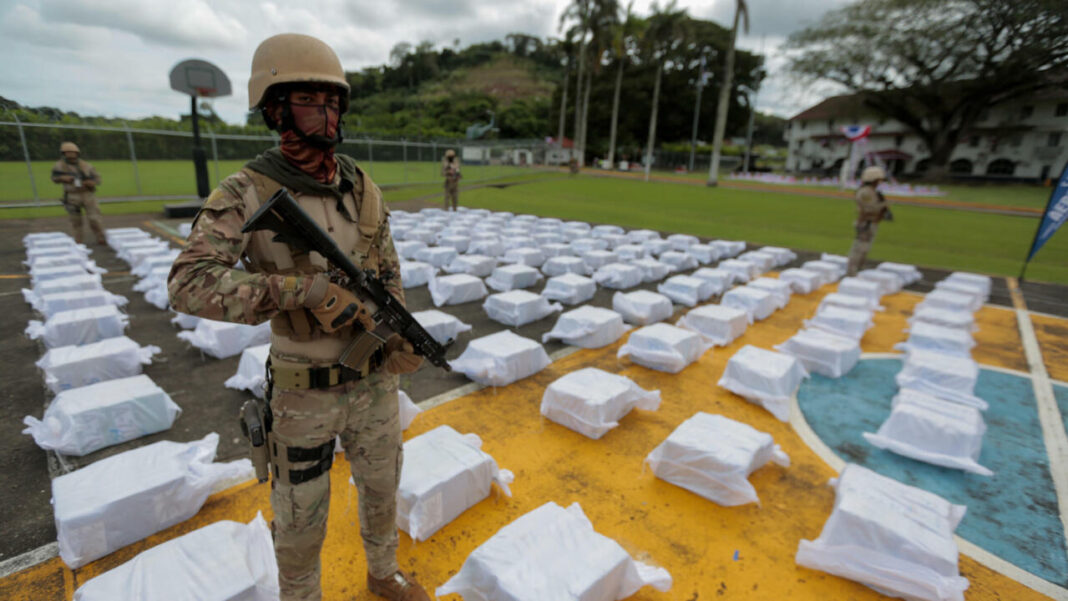Estimated reading time: 4 minutes
Aerial cocaine interdictions have fallen sharply in Central America in the last three years, suggesting that drug traffickers are shifting their modus operandi, potentially in response to increased attention on aerial routes.
Just two clandestine airstrips were discovered in Honduras in the first four months of 2024, according to data provided by the Honduran Defense Department in response to a freedom of information request. Meanwhile, in neighboring Guatemala, authorities destroyed just one airstrip and are yet to intercept a drug flight, according to data from the Guatemalan anti-narcotics police.
The numbers represent an increasingly sharp drop in interdictions along Central America’s aerial smuggling routes, which primarily run through Honduras and Guatemala. Large areas of remote forests far from the grasp of law enforcement, in addition to proximity to the Mexican border, make both countries attractive for traffickers looking to land drug planes.
In the late 2010s and early 2020s, the Honduran armed forces regularly destroyed over 30 clandestine airstrips a year. But those numbers have plummeted in the last few years, dropping to 25 in 2021, nine in 2022, and eight in 2023.
The number of drug runways destroyed by Guatemalan security forces also fell steadily from 22 in 2021, to 15 in 2022, to just 12 last year, before dropping to 1 in the first four months of 2024. Anti-narcotics agencies also have not seized any cocaine moved via aerial trafficking routes into Guatemala this year, after seizing 938 kilograms in 2023 and 3.8 tons in 2022.
Authorities in both countries have continued to make bumper cocaine seizures, primarily at sea. Honduran security forces seized almost 7 tons of cocaine in the first four months of 2024, mostly stemming from two multi-ton seizures intercepted off the country’s northern coast. Their Guatemalan counterparts confiscated 6 tons of cocaine in the same timeframe — mostly in Pacific waters, but also on land — surpassing last year’s annual haul of 5 tons.
“Drug trafficking organizations are primarily using maritime routes, particularly along the Pacific seaboard,” a US State Department official, not authorized to speak on the record, told InSight Crime. “The maritime domain remains a critical vulnerability to the counternarcotics effort in Honduras.”
InSight Crime Analysis
While the efforts of authorities seem to have pushed traffickers away from air routes, the reason behind the shift in methods remains unclear and the capacity of trafficking groups to ship cocaine in bulk remains unchallenged.
The Guatemalan military pointed to heightened aerial defenses as a reason behind the decline in cocaine arriving by aerial routes. In recent years, the armed forces, with US support, have invested in aircraft and radar technology to deter drug flights. The US also resumed sharing radar intelligence with Honduras in 2023, nine years after suspending cooperation in response to the Honduran air force shooting down multiple suspected drug planes.
But increased military capability likely has a limited effect. Traffickers never displayed any particular fear of authorities discovering their airstrips, often building new airstrips adjacent to ones decommissioned by security forces. Because of the large profits available, traffickers were often willing to dispose of drug planes and runways after a single flight, and the authorities were rarely able to get to new airstrips before drugs landed.
Alan Ajiatas, a former Guatemalan prosecutor and expert in drug dynamics, told InSight Crime that aerial interdiction was “one of the most difficult domains we’ve come across,” citing the difficulty of accessing isolated areas where drug planes land. “It’s normal and even logical to always be behind the curve,” Ajiatas added.
Recent prosecutions of key individuals who facilitated the Central America air bridge have likely played a larger part in the traffickers’ move away from drug flights.
For example, in 2021 — the year before aerial cocaine interdictions began to drop — Guatemalan prosecutors arrested three military officials suspected of sharing army intelligence to help traffickers bring drugs into the country by plane.
The United States also began in the late 2010s to dismantle a state-embedded drug trafficking network spearheaded by former Honduran president and convicted drug trafficker, Juan Orlando Hernández, at a time when aerial cocaine activity was peaking in Honduras. (https://insightcrime.org/news/central-ameria-drug-flights-fall/)



































